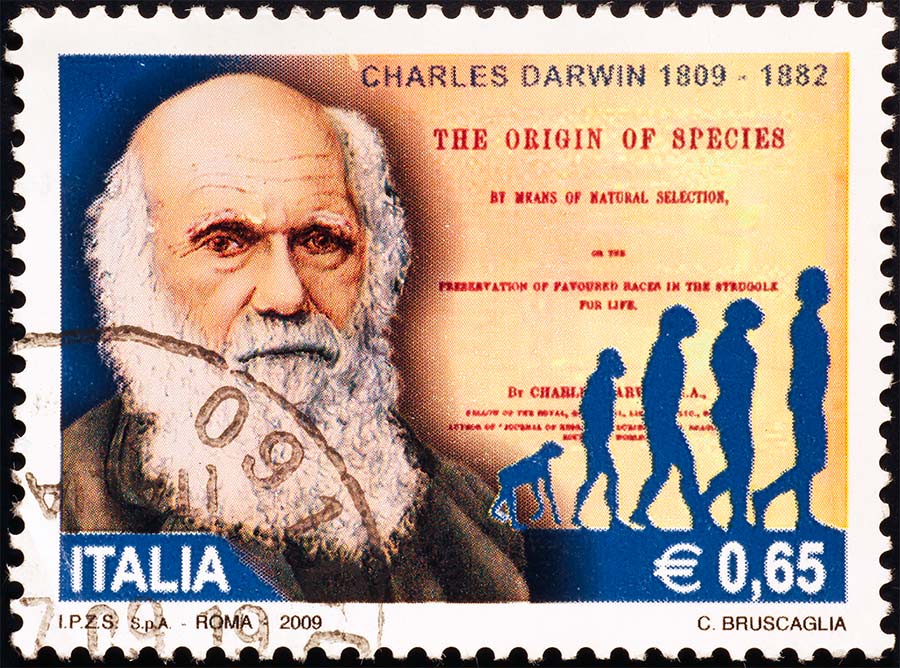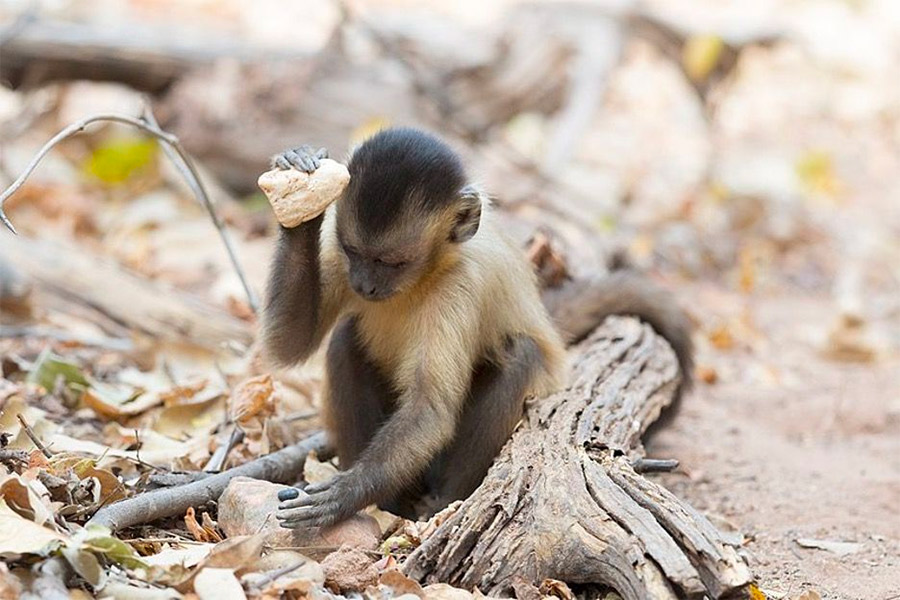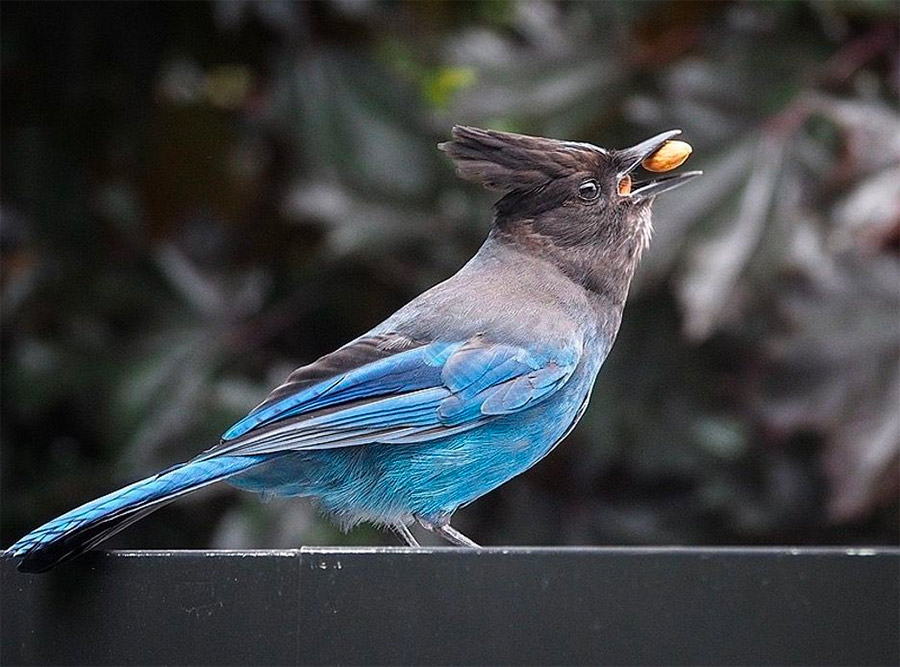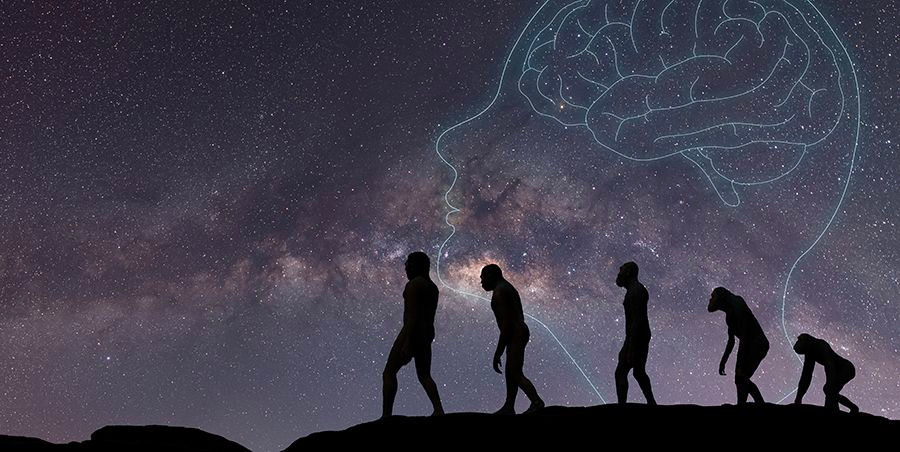- It has long been believed that our cognition was central to human uniqueness
- “Causal reasoning” is the ability to connect observed events as cause-and-effect
- Two competing theories seek to explain what exactly is special about the human mind—the cognitive niche and cultural niche theories
Highlights
Animal biologists are frequently warned not to anthropomorphize the species they study—it is dangerous to attribute human characteristics to very different kinds of animals. But what are these human traits that we are tempted to ascribe to animals—opposable thumbs? bipedalism? We project the content of our minds onto other creatures—our emotions, desires, and understandings of the world. In other words, our cognition—the mental action or process of acquiring knowledge and understanding through thought, experience, and the senses.
What makes humans so different?
It has long been believed that our cognition was central to human uniqueness. More than 2,000 years ago, Aristotle divided the soul into several components. We shared the nutritive, locomotive, and perceptive souls with other animals, but the rational soul was ours alone. This distinction became embedded in later Christian thought as the Scala Naturae or Great Chain of Being, which places God, angels, animals, plants, and minerals on a single scale. Humans were unique because we mixed the physical attributes of animals with the mind of the divine.

Stamp with Charles Darwin and the cover of his book "The Origin of Species" Image credit Shutterstock
This general framework remained broadly accepted for centuries, until Darwin, who argued that evolution occurred via incremental changes, so any differences between human and animal minds could not be fundamental. To this end, Darwin placed great emphasis on the mental common-ground of humans and other species, with considerable discussion of the emotional states of dogs and the intellectual feats of monkeys and apes arguing that “the difference in mind between man and the higher animals, great as it is, certainly is one of degree and not of kind.” This raised another challenge: if the human mind has evolved gradually from one more typical of other species, what is it about ours that makes us so different?
Causal reasoning
Decades of research into human and nonhuman cognition has begun to answer this question. Let’s start with “causal reasoning,” the ability to connect observed events as cause-and-effect. For instance, suppose you witness a nut shell develop a crack after a stone falls on it, causal reasoning enables you to understand that the force exerted by the stone damaged the shell. Skillful causal reasoners can mentally simulate situations in advance, for instance, reasoning that a harder blow may shatter the shell entirely, thereby giving you access to the food within. At its best, causal reasoning results in “insight”: an understanding of a task so clear and precise that solutions are immediate and obvious. Tests of causal reasoning typically find that humans far exceed the abilities of other species, but that animals are nonetheless capable of limited causal reasoning, including occasional cases of insight, such as the spontaneous production of hooks to collect food by both apes and crows.

A juvenile capuchin monkey (Sapajus libidinosus) using a stone as tool to open a seed. The capuchin population from Serra da Capivara has the most complex tool set known for neotropical primates, but to what extent do they understand what they are doing? Image credit Wikimedia
Other aspects of cognition show similar patterns. For instance, “episodic memory” is the cognitive ability to recall specific events (e.g., I overheard Mary make fun of my cake at the party last week) as opposed to general patterns (Mary is mean). Episodic memory was proposed as a unique hallmark of human cognition, but now similar feats have been detected in other species, starting with the Western Scrub Jay, which can remember where and when it cached individual food items, helping it eat cached food before it decays.

Food caching is common across birds and mammals, including this Stellar's Jay. However, many species have very low recovery rates, often eating less than 25% of the food they cache. Some species appear to be able to remember caching in detail, which allows much greater recovery rates. Image credit Wikimedia
As one more example, “theory of mind,” is the ability to recognize that other individuals have their own beliefs, attitudes, and goals and helps you manage social interactions. For instance, if you know that your sibling has forgotten a parent’s birthday, you can intervene to remind them (or not). Theory of mind also facilitates deception as you can deliberately manipulate the mental states of others to your own end—a form of cognition often characterized as Machiavellian intelligence. But once again, limited forms of theory of mind have been documented in other species, and so it is not the ability per se that is unique to humans but rather the extent of its development.
Cognitive or cultural niche?
These findings, and others like them, have been pulled together into two competing theories that seek to explain what exactly is special about the human mind. The first is the theory of the “cognitive niche.” It argues that humans found themselves in a unique selective environment that favored the evolution of the ability to solve problems on developmental, as opposed to evolutionary, timescales. The result was an “improvisational intelligence,” a collection of enhanced cognitive abilities that allowed humans to come up with complex solutions on the fly. And indeed, we can see that human behavior is full of clever ideas, like using the poisons secreted by frogs to lace arrow tips, and these have arisen from cognitive innovation, not genetic mutation.
More recently, the cognitive niche theory has been challenged by researchers, with a counter-movement. They, and other critics, argue that the cognitive niche places too much emphasis on what individuals are capable of, whereas the real secret of the success of our species is our ability to harness the collective intelligence of groups. This alternative theory, known as the “cultural niche” argues that while individual humans do possess remarkable problem-solving abilities, this is not the entirety of what is unique about human cognition. In addition, we have highly developed capacities to communicate, teach, and talk as well as to copy, recombine, and refine ideas from other people. It is this combination of individual and collective cognition that drives human uniqueness.

Humans found themselves in a unique selective environment that favored the evolution of the ability to solve problems on developmental, as opposed to evolutionary, timescales. Image credit Shutterstock
Many scientists have made numerous contributions to this debate including the “cultural niche” theory and how cultures produce many technologies that exceed the causal reasoning of individuals. How cultural history explains as much of our behavior as does current ecological conditions, indicative of the collective origins of many human behaviors. And how the evolutionary dynamics produced by the cognitive and cultural niche theories finding that the cultural account produces a better fit for the archaeological record as far back as three million years ago.
Written by Thomas Morgan PhD